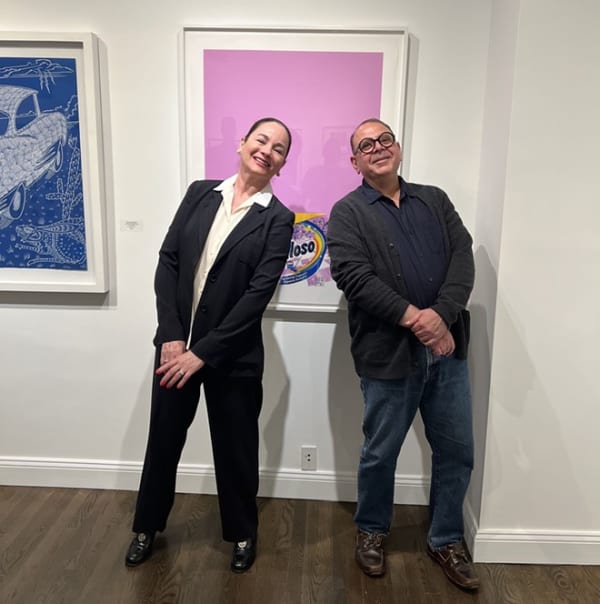Mel Casas American, 1929-2014
Casas is known for his Humanscape painting series whereby over the span of 150 paintings the Chicano experience slowly moves from the periphery to the center. The series began in 1965 with Humanscape 1 and concludes in 1989 with Humanscape 150. In regards to the future of Chicano art, Casas is quoted in the landmark exhibition, Chicano Art: Resistance and Affirmation (CARA), that his wishes were to make “Chicano art relevant to everyone.” Casas constructed a diagram outlining his vision to balance the “national art criteria” with Chicano Art and Regional Art in attempts to make Chicano art more accessible and “relevant to EVERYONE: AN ICONIC REALITY.”
Casas was an artist of national and international renown. He was also an educator and cofounder of the San Antonio Artist Collective Con Safo—considered by many to be one of the most significant Chicano Art groups of the 60s and 70s at a time when Chicano art was not being shown at mainstream venues. His broad and impactful practice of challenging borders that create metaphorical, physical, and ideological divergences. Casas’ practice was rooted in the Chicano ethos of social justice, bridging the cultural, political, and economic divides that define the borderlands.
Casas has been written about as a Chicano artist yet his practice predated the emergence of the Chicano Movement. By the time of the UFW Delano Grape Boycott of 1965 and the Mexican American student protests at schools in Texas and California between 1967-1969, Casas had been practicing professionally as an artist and painter for almost a decade. Between 1958-1965 Casas participated in numerous solo, 2-person, and group exhibitions at local community arts spaces, galleries, and museums in Texas and Mexico. In this regard the Chicano Movement did not generate Casas’ artistic practice. Rather, his cultural work supported and coincided with the emergence of a broad civil rights movement. When interviewed about Latino/Chicano identity, Casas is not dismissive of identity, but rather has grand ambitions for it. “Because I am of Mexican descent and I readily admit it. But that doesn’t make me an artist. I am not a professional Mexican.”
Born in El Paso, Texas, Casas received his BA from the Texas Western University and an MFA from the University of the Americas in Mexico. Like many Mexican Americans from this generation, Casas was able to attend college with support from the GI Bill after serving in the Korean War. Casas was professor emeritus at San Antonio College, where he taught for 29 years before retiring as chairman of the art department in 1990.
-
 Mel CasasHoly Mackerel!, 2006Acrylic on canvas30 x 15"
Mel CasasHoly Mackerel!, 2006Acrylic on canvas30 x 15"
76.2 x 38.1 cm -
 Mel CasasBlue Orange Basket, 1993Acrylic on canvas24 x 24"
Mel CasasBlue Orange Basket, 1993Acrylic on canvas24 x 24"
60.9 x 60.9 cm -
 Mel CasasWhere is the Beef, 1993Acrylic on canvas24 x 24"
Mel CasasWhere is the Beef, 1993Acrylic on canvas24 x 24"
60.9 x 60.9 cm -
 Mel CasasCrabby, 1991Acrylic on canvas24 x 24"
Mel CasasCrabby, 1991Acrylic on canvas24 x 24"
60.9 x 60.9 cm -
 Mel CasasHumanscapes 114, 1982-04-01Acrylic on canvas72 x 96"
Mel CasasHumanscapes 114, 1982-04-01Acrylic on canvas72 x 96"
182.8 x 243.8 cm -
 Mel CasasHumanscapes 95: Bird Watching Art, 1978-02-01Acrylic on canvas72 x 96"
Mel CasasHumanscapes 95: Bird Watching Art, 1978-02-01Acrylic on canvas72 x 96"
182.8 x 243.8 cm -
 Mel CasasHumanscapes 94: Art Lures, 1978-01-01Acrylic on canvas72 x 96"
Mel CasasHumanscapes 94: Art Lures, 1978-01-01Acrylic on canvas72 x 96"
182.8 x 243.8 cm -
 Mel CasasHumanscapes 74, 1975-01-01Acrylic on canvas72 x 96"
Mel CasasHumanscapes 74, 1975-01-01Acrylic on canvas72 x 96"
182.8 x 243.8 cm -
 Mel CasasHumanscapes 47, 1968-08-01Acrylic on canvas72 x 96"
Mel CasasHumanscapes 47, 1968-08-01Acrylic on canvas72 x 96"
182.8 x 243.8 cm -
 Mel CasasHumanscapes 41, 1968-02-01Acrylic on canvas72 x 96"
Mel CasasHumanscapes 41, 1968-02-01Acrylic on canvas72 x 96"
182.8 x 243.8 cm
-

Mel Casas: Iconic Reality I Ruiz-Healy Art
Essay by Carlos Francisco Jackson 2017Hardcover, 46 pagesRead more
Publisher: Ruiz-Healy Art
ISBN: 9781389557910
Dimensions: 8x10 in -
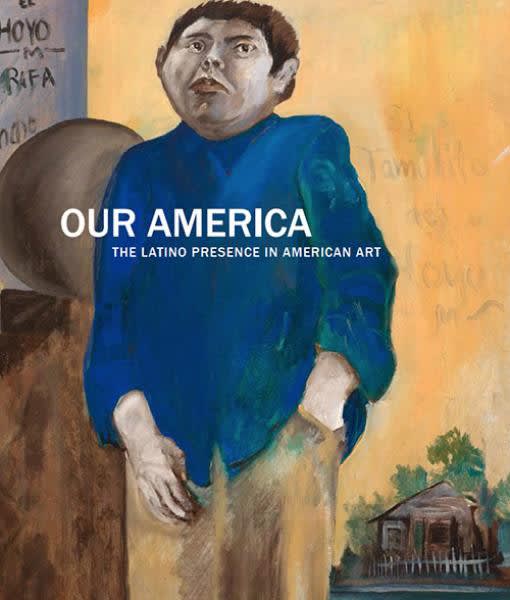
Our America: The Latino Presence in American Art / Smithsonian American Art Museum
Chuck Ramirez, Celia Álvarez Muñoz, Mel Casas, Jesse Amado, Frank Romero Essay by E. Carmen Ramos, and introduction by Tomás Ybarra-Frausto, 2014Hard Cover, 368 pagesRead more
Publisher: Smithsonian American Art Museum
ISBN: 978-0-937311-94-1
Dimensions: 10 x 12" -
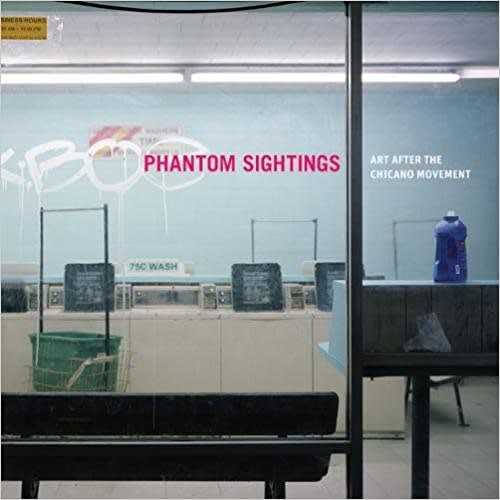
Phantom Sightings: Art after the Chicano Movement I Alejandro Diaz
Essays by Rita Gonzalez, Howard N. Fox & Chon A. Noriega Rita Gonzalez, Howard N. Fox & Chon A. Noriega, 2008Hardcover, 240 p pagesRead more
Publisher: University of California Press
ISBN: 0520255631
Dimensions: 10.5 x 10.5 -
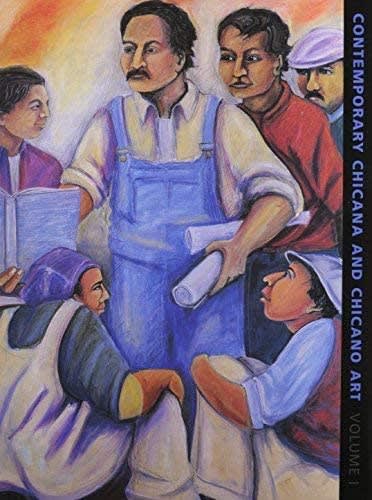
Contemporary Chicana and Chicano Art: Artists, Works, Culture, and Education
Featuring: Celia Álvarez Muñoz, Consuelo Jimenez Underwood, César A. Martínez and Frank Romero Gary D. Keller, Mary Erickson, Kaytie Johnson, Joaquín Alvarado, 2003 Read more -

Arte Latino: Treasures from the Smithsonian American Art Museum
Author: Jonathan Yorba I Featuring: Frank Romero and Mel Casas 2001Paperback, 112 pages pagesRead more
Publisher: Watson-Guptill Publications
Dimensions: 9.16 x 9.24 x 0.46 inches -
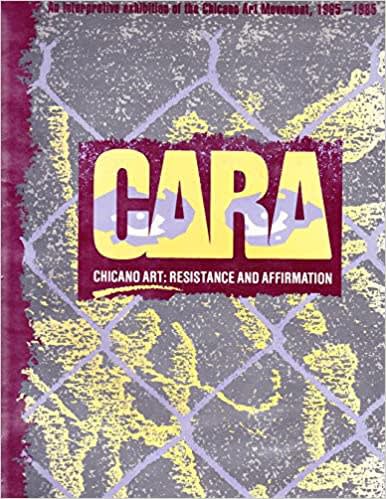
Chicano Art: Resistance and Affirmation, 1965-1985
Celia Alvarez Muñoz, Mel Casas, César A. Martínez, Frank Romero Richard Griswold Del Castillo, Teresa McKenna & Yvonne Yarbro-Bejarano, editors, 1991Softcover, 373 pagesRead more
Publisher: Wight Art Gallery, University of California, Los Angeles
ISBN: 0943739152
Dimensions: 9.25 x 1.25 x 12.5 in -
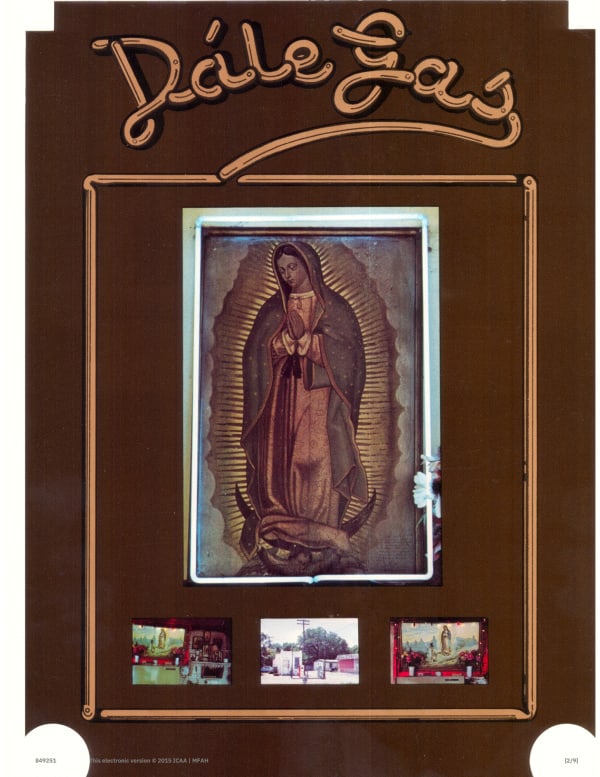
Dále Gas: Chicano Art of Texas I Contemporary Arts Museum Houston (CAMH)
Curated by Santos G. Martinez Jr. I Featuring: Mel Casas and Cesar A. Martinez Santos G. Martinez Jr., 1977 Read more












